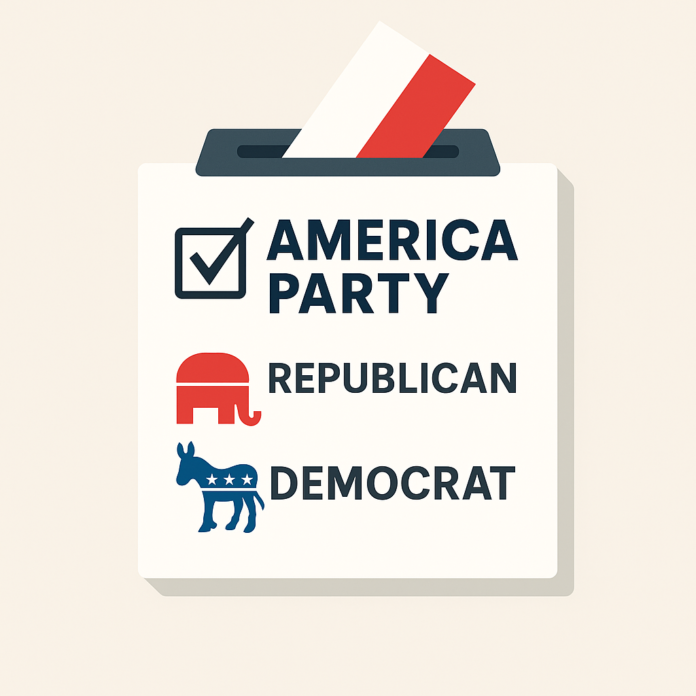
Elon Musk says he has launched a new political party called the America Party, setting the stage for potential disruption in the current two-party structure. The announcement follows a very public fallout between Musk and former President Donald Trump, triggered by the recent passage of Trump’s sweeping tax and spending bill.
Posting on his social media platform X, Musk declared, “Today, the America Party is formed to give you back your freedom,” claiming the existing political system no longer reflects the interests of most Americans. Musk has criticized the tax bill as wasteful and damaging to the country’s fiscal health, calling it “a disgusting abomination” and accusing both major parties of contributing to unchecked government expansion.
Though Musk says the party is real, questions remain about whether any official steps have been taken to establish it legally. The Federal Election Commission has received a wave of filings referencing the America Party, Musk, and even cryptocurrency-related names like “DOGE Party,” but most appear suspicious. Some include untraceable email addresses or use names of Tesla executives and fake addresses. Musk has publicly denied involvement with at least one of the filings and reported it to the FEC.
So far, no formal documentation has been verified as authentic. A spokesperson for Musk and his political action committee, America PAC, did not provide additional comment as of Monday.
The timing of Musk’s announcement and the attention it has drawn point to deeper fractures between him and his former political allies. Once a prominent supporter of Trump and head of the federal Department of Government Efficiency during the previous administration, Musk now finds himself openly criticizing Republican leadership.
Trump, for his part, dismissed the idea of the America Party as “ridiculous,” saying third-party efforts lead only to confusion. “It’s always been a two-party system,” he told reporters, before warning that outside parties tend to cause “disruption and chaos.”
Despite those warnings, Musk appears eager to play a role in the 2026 midterms. He has suggested on X that he would back primary challengers against lawmakers who supported the tax bill and expressed support for Rep. Thomas Massie, a Republican who voted against the measure. Musk has also shared ideas for the America Party’s platform, which includes support for bitcoin, the Second Amendment, reduced government spending, and expanded free speech protections.
Still, political analysts point out that forming a viable third party is a complex and expensive process. State-by-state ballot access requirements, fundraising regulations, and organizational logistics all present steep challenges. While Musk has the resources to address those barriers—he spent over $250 million backing Trump’s 2024 campaign—his overall favorability among voters has waned since his time in Washington.
Polling data suggests public reaction to Musk’s political involvement has been mixed. In a recent state judicial race, the candidate Musk opposed won after a backlash to his endorsement. Critics, including former Treasury Secretary Scott Bessent, have urged Musk to focus on his business ventures instead of escalating his political ambitions.
Whether the America Party materializes into an actual force remains to be seen. For now, it’s another move by Musk that has put him back in the political spotlight—and in direct opposition to his former allies.
This image is the property of The New Dispatch LLC and is not licenseable for external use without explicit written permission.